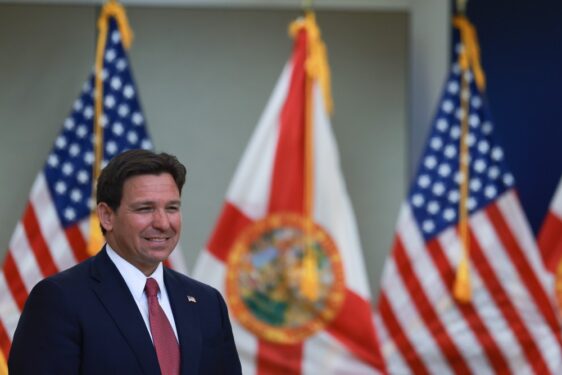
By Kate Scanlon, OSV News
(OSV News) — A law prohibiting elective abortions after six weeks of pregnancy went into effect May 1 in Florida, as that state also faces a ballot measure on abortion in November.
In April, the Florida Supreme Court simultaneously upheld that its state Constitution does not protect abortion access while also allowing a proposed amendment seeking to add such protections to that document to qualify for the Sunshine State’s November ballot.
The Florida high court upheld the state’s 15-week ban on abortion April 1, which also in effect allowed the state to enforce a six-week ban known as the Heartbeat Protection Act, which was signed by Republican Gov. Ron DeSantis in April 2023 and was on pause pending the ruling. The latter went into effect May 1.
Marjorie Dannenfelser, president of SBA Pro-Life America, said in a statement the law is “an enormous victory for women and children, set to protect 50,000 lives a year starting today, while it has already expanded critical support for Florida’s life-affirming safety net.”
“These and other protections that the people of Florida greatly desire must be preserved from Big Abortion’s deceptive amendment to enshrine no-limits abortion in the state constitution,” she said.
Vice President Kamala Harris pointed to former President Donald Trump, the presumptive Republican presidential nominee, as responsible for the ban. Harris said during May 1 remarks at a campaign stop in Jacksonville that a second Trump administration would lead to “more bans, more suffering, less freedom.”
“But we are not going to let that happen,” Harris said. “Because we trust women. We trust women to know what is in their own best interest. And women trust all of us to fight to protect their most fundamental freedom.”
White House press secretary Karine Jean-Pierre called the ban “extreme” during a May 1 press briefing at the White House.
“That’s before many women even know they’re pregnant,” Jean-Pierre said of the six-week law. “We should all be concerned that this extreme abortion ban will put desperately needed medical care even further out of reach for millions of women in Florida and across the South.”
During his third bid for the White House, Trump announced that abortion should be left to the states to legislate, to the disappointment of some pro-life groups who sought a commitment from him for a federal 15-week ban.
The Yes on 4 campaign — a coalition of groups in favor of Florida’s upcoming ballot measure — argued the ban is harmful for Floridians.
Dr. Chelsea Daniels, a spokesperson for that campaign, said in a statement, “The women of Florida are in trouble.”
“Today, we awoke to a new world,” Daniels said. “A world where the State, and not individuals, is in control of our bodies, our lives and our futures. A world where treatable complications in pregnancies will become life-threatening, not because we don’t know how to treat them, but because we won’t be allowed.”
When DeSantis, a Catholic, signed the bill last year, prior to his failed presidential run, he said he was “proud to support life and family in the state of Florida.”
Dannenfelser praised DeSantis as “right” for signing the law in her May 1 statement.
“The abortion amendment which would allow abortion throughout the second and third trimesters, eviscerate health protections for women, and remove parental consent is far too extreme for Florida,” she said. “We must sound the alarm about the far-reaching implications of the abortion industry’s scheme to grow their profits at the expense of babies’ lives and the safety of women and girls.”
The Catholic Church teaches that all human life is sacred from conception to natural death, opposing direct abortion as an act of violence that takes the life of the unborn child.
After the Dobbs decision, church officials in the U.S. have reiterated the church’s concern for both mother and child, and called to strengthen available support for those living in poverty or other causes that can push women toward having an abortion.
